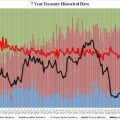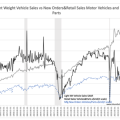Recent cautionary statements from Tokyo have moderated the yen’s depreciation, as it hovers near a 34-year low, triggering frequent signals of potential intervention.
These interventions have somewhat slowed the yen’s decline, keeping it above the 151 mark against the dollar, with the current rate standing at 151.745 to the dollar.
Japanese Finance Minister Shunichi Suzuki has once again voiced warnings to those betting against the yen, in efforts to curb any further destabilizing drops in its value.
In the wake of unexpectedly strong U.S. manufacturing data, which raised questions about the Federal Reserve’s timeline for interest rate adjustments, market participants are now seemingly adjusting to signs of economic resilience.
Despite concerns over a prolonged period of high interest rates, many analysts believe the Federal Reserve’s focus remains on controlling inflation, which has shown signs of easing, and closely monitoring upcoming labor market data.
European stock markets are poised for a positive opening, following a break for holiday observances, with the pan-European STOXX 600 aiming to build on its record-setting performance and 7% first-quarter growth.
Attention is also turning to manufacturing and inflation data across Europe, as investors evaluate the economic health of the region, with a particular focus on whether Euro zone manufacturing activity contracted in March.
With anticipation building around when the European Central Bank may begin reducing interest rates, a significant number of ECB policymakers have signaled support for such measures, eyeing a potential June timeline.
Despite unanimous expectations for the ECB to maintain its deposit rate at 4.00% in its April 11 meeting, a strong majority of economists predict rate cuts could commence as early as June.
Market movements on Tuesday will be influenced by key economic indicators, including manufacturing PMI data from France, the UK, Germany, and the Euro zone, alongside preliminary inflation figures from Germany.
Additionally, debt auctions in Germany and France will be closely watched, with both countries reopening bids for various government debt securities.




